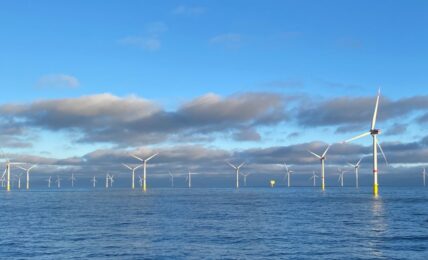The European Council announced today that it adopted a series of new laws aimed at enabling the EU to hit its climate targets, including the establishment of a carbon tax on imported goods, and an update to the EU emissions trading system aimed at helping to reduce emissions from several sectors of the economy.
The announcement marks the last major step in passing into law several of the key elements of the European Commission’s “Fit for 55” roadmap – the EU’s proposed strategy to cut greenhouse gas (GHG) emissions by 55% by 2030, compared to 1990 levels, and to reach climate neutrality by 2050. Following the approval last week by the European Parliament of the new regulations, they will be published in the EU’s Official Journal before entering into force 20 days later.
The new laws adopted Tuesday include the establishment of the new EU Carbon Border Adjustment Mechanism (CBAM), aimed at avoiding “carbon leakage,” a situation in which companies move production of emissions intensive goods to countries with less stringent environmental and climate policies.
CBAM will equalize the price of carbon paid for EU products operating under the EU Emissions Trading System (ETS) – the EU’s internal cap and trade carbon pricing mechanism – with that paid for products produced in other countries, with companies that import into the EU required to purchase CBAM certificates in order to make up the difference.
The Council also adopted laws to revise the EU ETS. Established in 2005, the European Emission Trading System puts a price on carbon emissions for key GHG intensive sectors, including electricity and heat generation, oil refineries, steel, cement, paper, chemicals, and commercial aviation, among others. Today’s announcement significantly increases the EU ETS’ ambition, directing emissions reductions in the covered sectors to 62% by 2030 compared to 2005, relative to the prior 43% mandate, expands the system to cover shipping emissions from the maritime sector, and phases out free allowances to the aviation sector that allow airlines to avoid paying for carbon emissions on intra-European flights, as well as flights departing flights to the UK and Switzerland.
The new laws adopted also include the establishment of a Social Climate Fund, aimed at supporting vulnerable households, micro-enterprises and transport users that may be affected by the price impacts of the ETS on several sectors. The Social Climate Fund will be funded through the auctioning of ETS allowances, and supplemented by national contributions to reach up to approximately €87 billion.
The post EU Lawmakers Adopt Legislation to Establish Carbon Tax, Cut Sector Emissions appeared first on ESG Today.


